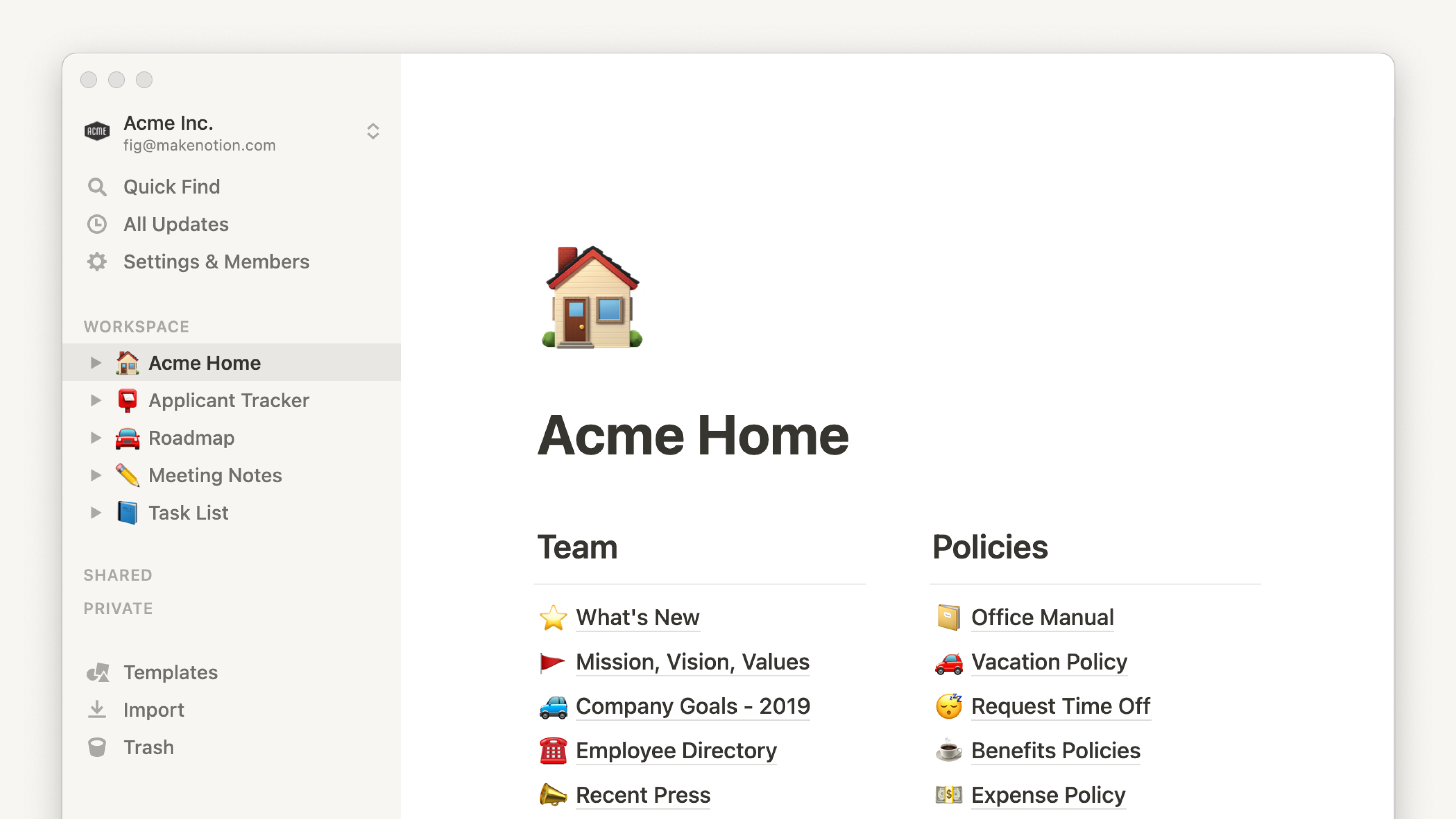Imagine a world where your notes, tasks, databases, and wikis could coexist in one magical space. This isn't just a dream—it's the reality Ivan Zhao and Simon Last created when they founded Notion in 2013.
The Origin Story

Ivan Zhao wasn't just another tech entrepreneur. He was a designer frustrated with the fragmented world of productivity tools. While working at various startups, he witnessed how teams struggled with scattered information—jumping between Evernote, Trello, spreadsheets, and countless other apps.
The core problem? No single tool could adapt to how people actually work.
The Breakthrough Concept
Notion's revolutionary idea was deceptively simple: create a workspace that's simultaneously a notebook, project management tool, database, and collaboration platform. It's like giving users a digital Lego set where they can build anything they can imagine.
His design background significantly shaped the development of Notion. His academic journey in cognitive science, combined with his passion for art, influenced Notion's clean user interface and intuitive workflows. Zhao aimed to create a tool that not only functioned well but also inspired users, reflecting his belief that technology should enhance human potential. This holistic approach allowed him to integrate aesthetics with functionality, making Notion a versatile platform that adapts to various user needs.
Cpmplexity to Simplicity

The Paradox of Design
Notion's brilliance in its paradoxical design:
-Simple enough for a student to create a study tracker
-Powerful enough for a startup to manage entire company operations
-Flexible enough to be a personal wiki, a team dashboard, or a complex project management system
Notion exemplifies a remarkable paradox in design, seamlessly balancing simplicity and complexity. This platform is ingeniously crafted to cater to a diverse range of users, from students needing a straightforward study tracker to startups managing intricate company operations. Its brilliance lies in its ability to adapt to various needs while maintaining an intuitive interface.
At its core, Notion is designed for accessibility. A student can easily navigate the platform to create a study tracker that helps organize notes and assignments without feeling overwhelmed by unnecessary features. This simplicity invites users who may not be tech-savvy, allowing them to engage with the tool effectively. The user-friendly design ensures that even those with minimal experience can harness its capabilities, making it an ideal choice for educational environments.
However, this simplicity does not come at the expense of power. For startups and larger organizations, Notion transforms into a robust management system capable of overseeing entire company operations. It offers advanced functionalities such as project management, team collaboration, and documentation—all within a single platform. This duality—being both simple and powerful—illustrates the paradoxical nature of Notion’s design. It serves as a versatile tool that scales with the user's needs, accommodating everything from personal tasks to complex business projects.
Moreover, Notion's flexibility is another testament to its paradoxical design ethos. The platform can function as a personal wiki, where individuals curate information for personal use, or as a team dashboard that centralizes communication and project tracking for groups. This adaptability allows users to customize their experience according to their specific requirements, whether they are managing a small project or coordinating efforts across multiple teams in a large organization.
The underlying principle of Notion's design is rooted in the idea of embracing paradoxes. By allowing for both simplicity and complexity, Notion challenges traditional notions of what productivity tools should be. It breaks away from the linear approach often seen in software development, where products are either designed for beginners or advanced users. Instead, Notion thrives on the coexistence of these extremes, creating an environment where users can grow and evolve alongside the tool.
Key Innovations
-Blocks Over Pages: Unlike traditional documents, Notion uses "blocks" - modular units you can drag, transform, and reconfigure endlessly.
-Database Superpowers: Imagine a spreadsheet that can transform into a Kanban board, calendar, gallery, or list with a single click.
-Template Culture: Notion didn't just create a tool; they created a community where users share and remix productivity templates.
The Human Touch
What sets Notion apart isn't just code—it's understanding. They recognized that productivity isn't about rigid structures, but about empowering individual creativity.The psychology behind Notion's addictive nature lies in its ability to cater to user behavior and preferences. The platform offers extensive customization options, which can trigger a dopamine response as users create and organize their workspaces. This sense of ownership and creativity drives engagement and productivity among users.
